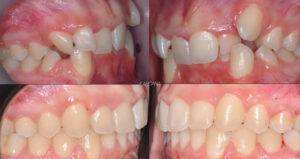Endodontics is the branch of dentistry that deals with the care of the endodontic, i.e. the internal structure of the tooth, allowing for the treatment of abscesses, cysts, and granulomas when the internal tissues of the tooth become ill or damaged due to caries or trauma.
Endodontics allows you to save teeth condemned to extraction when severely damaged. Preserving natural teeth for as long as possible is in fact very important for correct chewing. Root canal treatment, or root canal therapy, consists in removing the dental pulp which has undergone a state of in flammation/infection which leads the tooth to loss of vitality and the subsequent formation of abscesses, cysts, and granulomas.

The dental pulp contained in the root canals is the innermost part of a tooth, made up of blood vessels, nerves, and cells, and is very important for the growth and development of the tooth. Proper root canal therapy is important because improperly devitalized teeth can create problems that a fact the therapies carried out after devitalization (reconstructions, inlays, and prosthetic crowns), leading to the failure of the therapeutic plan. In fact, it often happens that we have to re- treat teeth that were incorrectly devitalized in the past to eliminate the chronic residual infection at the apex of the roots, called granuloma, which is asymptomatic but detectable radiographically. In this case, we speak of root canal retreatment.

But when is it necessary to devitalize a tooth?
In flammation or infection of the pulp can occur due to deep caries, due to a fracture or crack in the tooth; even a strong trauma can cause irreversible damage to the pulp, even if the tooth has no apparent sign. If the infectious/in flammatory focus is not eliminated adequately and in a short time, the typical pain of acute pulpitis may occur, which in the most severe cases leads to a dental abscess.
